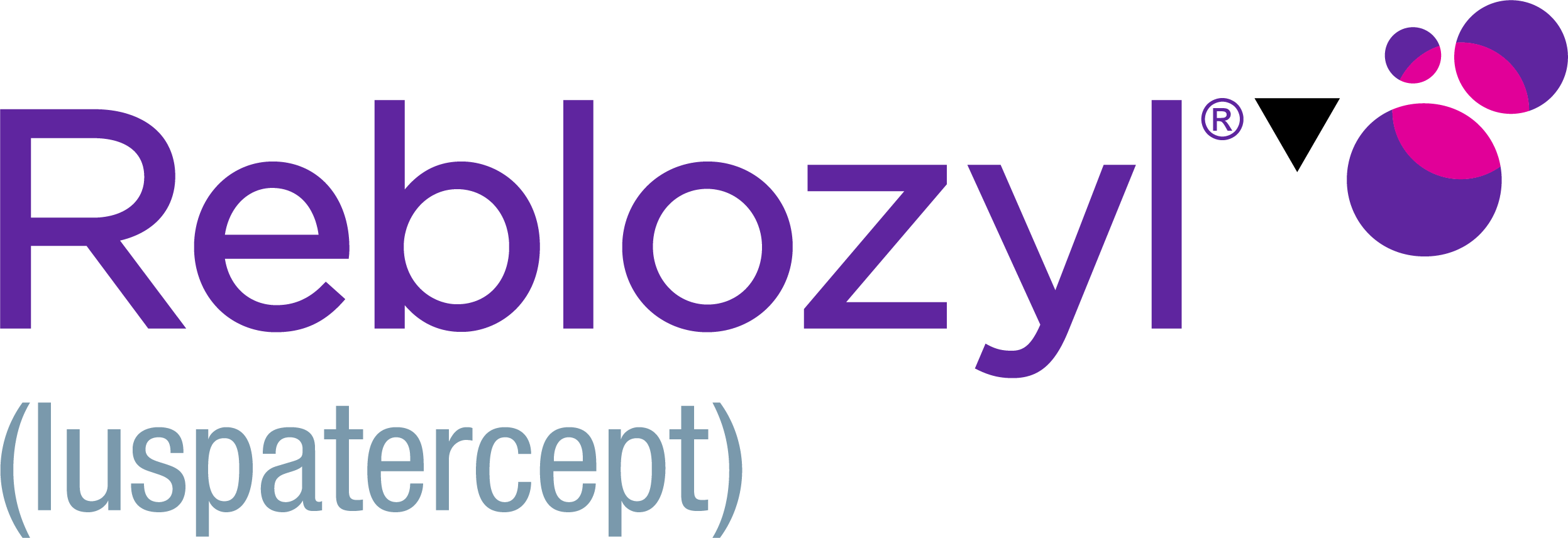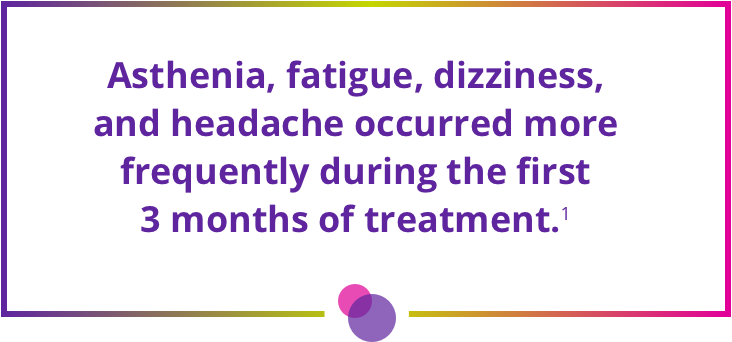This site is intended for healthcare
professionals in Belgium and Luxembourg.

The safety evaluation of Reblozyl® in MDS is based on the double-blind, randomized, placebo-controlled, phase 3 MEDALIST trial (with 153 patients treated with Reblozyl® and 76 patients receiving placebo).1
The most commonly reported Grade 3 or higher adverse drug reactions (at least 2% of patients) included syncope/presyncope, fatigue, hypertension, and asthenia. The most commonly reported serious adverse drug reactions (at least 2% of patients) were urinary tract infection, back pain, and syncope.1
Most frequently reported adverse drug reactions
in at least 15% of patients receiving Reblozyl®1

For full details on adverse drug reactions in patients treated with Reblozyl® for MDS, please refer to the Summary of Product Characteristics (SmPC): SmPC in French, SmPC in Dutch.
Selected adverse reactions in MEDALIST trial1
Selected adverse reactions in patients with MDS1
Higher instance of adverse reactions with Reblozyl® vs placebo in the MEDALIST trial
4.6% Reblozyl®
2.6% Placebo
All events were Grade 1 or 2
3.9% Reblozyl®
0% Placebo
All were Grade 1 and did not lead to treatment discontinuation
Other adverse reactions in MDS
8.8% of Reblozyl® patients tested positive for
treatment-emergent anti-luspatercept antibodies
No difference between Reblozyl® and Placebo
8.5% Reblozyl®
9.2% Placebo
Grade 3 events were reported in 5 patients receiving Reblozyl® (3.3%);
none led to treatment discontinuation
5.2% Reblozyl®
11.8% Placebo
2.6% Reblozyl®
3.9% Placebo
Treatment discontinuation due to an adverse reaction occurred in 2.0% of patients with MDS. The adverse reactions leading to treatment discontinuation in the Reblozyl® arm were fatigue and headache.1

The safety evaluation of Reblozyl® in MDS is based on the double-blind, randomized, placebo-controlled, phase 3 MEDALIST trial (with 153 patients treated with Reblozyl® and 76 patients receiving placebo).1
Most frequently reported adverse drug reactions in at least 15% of patients receiving Reblozyl®1

The most commonly reported Grade 3 or higher adverse drug reactions (at least 2% of patients) included syncope/presyncope, fatigue, hypertension, and asthenia. The most commonly reported serious adverse drug reactions (at least 2% of patients) were urinary tract infection, back pain, and syncope.1
For full details on adverse drug reactions in patients treated with Reblozyl® for MDS, please refer to the Summary of Product Characteristics (SmPC): SmPC in French, SmPC in Dutch.
Selected adverse reactions in patients with MDS1
Higher instance of adverse reactions with Reblozyl® vs placebo in the MEDALIST trial
Other adverse reactions in MDS
of MDS patients receiving Reblozyl® discontinued treatment due to an adverse reaction1
The adverse reactions leading to treatment discontinuation in the Reblozyl® arm were fatigue and headache.1